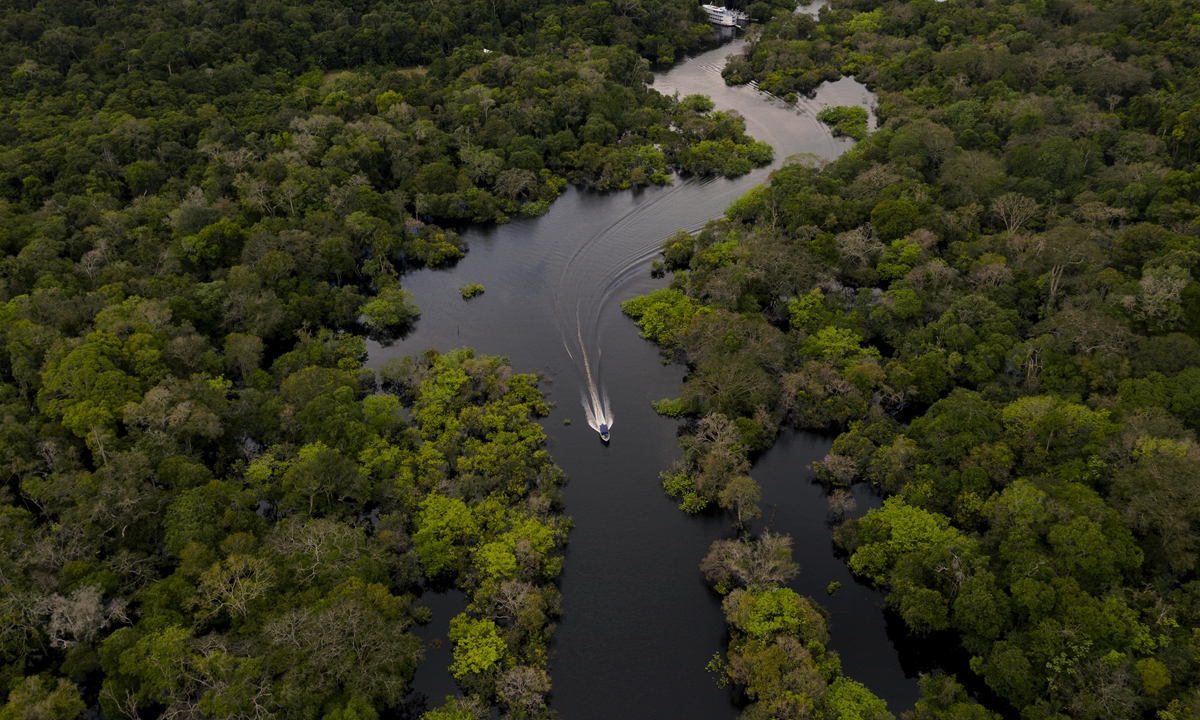
A boat speeds on the Jurura river in the Brazilian Amazon forest on March 15. Photo: AFP
Brazilian authorities burned more than 60 river-dredging boats in a crackdown on wildcat miners drawn to a major Amazon tributary by rumors of a gold find, the government and Greenpeace said Sunday.Justice Minister Anderson Torres said 69 vessels were destroyed Saturday, and he published photos and video of them on fire on the banks of the Madeira River.
"Minister, congratulations on the operation," right-wing President Jair Bolsonaro tweeted.
At least 300 dredging boats lined up side by side on the Madeira last week following rumors that gold had been discovered.
As images spread of this gold rush, the authorities prepared an operation to end the flurry of illegal mining.
By Saturday, many boats had dispersed to other areas nearby, said Greenpeace Brazil, which also published photos of dredging boats on fire.
"This operation shows that Brazil has the capacity to confront illegal activity and ensure the protection of our rivers, rainforests and traditional peoples," Greenpeace said. "All it takes is political will."
While clandestine gold mining is commonplace in the Amazon, this precious metals rush, some 100 kilometers from the city of Manaus, attracted special attention, Greenpeace said last week.
The group demanded greater speed from the authorities to stop what it called an environmental crime.
Greenpeace said images from the river showed that the "garimpeiros," as wildcat miners are known in Brazil, were dominating the area and operating "without fear."
A report by the Federal University of Minas Gerais together with Brazil's Public Prosecutor's Office revealed in July 2020 that just 34 percent of the 174 tons of gold exploited in Brazil between 2019 and 2020 had a proven legal origin.
Environmentalists have accused Bolsonaro's government of pursuing anti-environmentalist policies and weakening protections.
Since Bolsonaro assumed power in January 2019, Amazon deforestation has surged, mainly due to illegal mining and cattle ranching.
AFP
